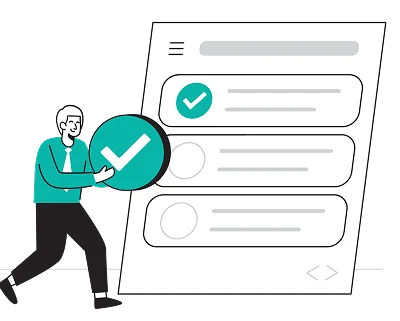As a financial planner, your clients rely on you for guidance in securing all sorts of aspects of their financial future.
As they build wealth and accumulate assets, estate planning naturally becomes a topic of discussion.
Questions about wills, trusts, and legacy planning begin to surface, and clients look to you for clarity.
While estate planning documents are usually drafted by estate planning attorneys, financial planners play a vital role in helping clients organize their affairs, analyze their progress, and keep everything updated.
This is where estate planning software that is designed for financial advisors can make a real difference.
- While an estate lawyer is usually used for drafting estate documents, financial advisors are instrumental in helping clients organize assets, keep records updated, and align their financial plans with their estate goals.
- Estate planning software is key for the entire estate planning process as it helps to centralize documents, track assets, provide real-time updates, and ensure seamless coordination between financial advisors and legal professionals.
- Helping clients structure their estate plans properly prevents complications and ensures their wishes are clearly documented.
- Understanding Wills, Trusts and Other Estate Planning Documents: Where Financial Planners Fit In
- The Power of Estate Planning Software for Financial Advisors
- Stepping Up: How Financial Planners Can Help Clients Stay on Track with Estate Planning
- Holistiplan: Helping Create the Comprehensive Suite of Services Your Clients Need
Financial advisors wear a lot of hats. Not only do they guide clients through investment strategies, retirement planning, and tax optimization, but they can also play a critical role in helping their clients with their estate planning needs.
By leveraging estate planning software, advisors can provide a seamless experience that simplifies asset management, keeps documents up to date, and fosters smoother collaboration between financial and legal professionals.
Built by CFP® Professionals,
for CFP® Professionals
Holistiplan was designed by experienced advisors Roger and Kevin to streamline your financial planning process. Achieve more for your clients in less time
Start Your Free 7-Day TrialUnderstanding Wills, Trusts and Other Estate Planning Documents: Where Financial Planners Fit In
Estate planning often begins with the creation of certain documents that are designed to help estate planning clients outline their wishes, distribute assets efficiently, and protect their financial legacy.
These documents are usually drafted with the help of legal assistance and serve as an essential tool in ensuring that a client’s estate plan is managed according to their intentions — while also minimizing potential complications for their future beneficiaries.
Let’s look more carefully at the typical documents that make up an estate plan:
Wills: The Foundation of Estate Planning
A will is a legal document that can be drafted with estate planning legal software and outlines how a person’s assets should be distributed upon their death. A basic will allows individuals to designate beneficiaries, appoint guardians for minor children, and specify final wishes.
Financial planners can assist clients in:
- compiling an inventory of their assets to ensure all possessions are accounted for in the will.
- coordinating beneficiary designations to align with financial accounts and insurance policies.
- identifying potential tax implications and advising clients to seek legal expertise where needed.
- reviewing their estate plan periodically to ensure their will reflects life changes.

Trusts: When More Control Is Needed
A trust is another estate planning tool that allows individuals to transfer assets into a separate entity managed by a trustee. Trusts can be used to avoid probate, protect assets from creditors, and ensure wealth is distributed according to specific conditions.
Financial planners can support clients by:

- helping them determine whether a trust aligns with their financial goals.
- organizing their financial accounts so assets are structured correctly for a trust.
- ensuring designated accounts and property are transferred properly.
- keeping trust documentation up to date with estate planning software
Power of Attorney: Managing Financial and Medical Decisions
A power of attorney (POA) allows individuals to appoint someone to make financial or medical decisions on their behalf if they become incapacitated.
Here are the key differences between the two types of POAs:
- A financial power of attorney (POA) grants someone the authority to manage financial matters, such as investing and paying bills.
- A medical Power of Attorney (also called a healthcare proxy) allows a designated individual to make healthcare decisions on behalf of the person when they are unable to do so.

Financial planners can help clients keep these documents organized and updated with good estate planning software, which is a key part of the estate planning practice.
Advance Healthcare Directive (Living Will)
A living will, also known as an advance healthcare directive, specifies a person’s medical preferences if they are unable to communicate their decisions.

This document outlines treatment preferences, resuscitation instructions, and end-of-life care wishes.
Financial planners can encourage clients to review this document to ensure their estate plan covers all aspects of their legacy, including healthcare choices.
Beneficiary Designations and Transfer-on-Death (TOD) Accounts
Beneficiary designations on financial accounts and insurance policies override instructions in a will, meaning assets in these accounts pass directly to named individuals.
Financial planners should help clients:
- regularly review and update beneficiary designations
- ensure all accounts, including life insurance policies and retirement funds, have correctly designated beneficiaries.

Estate planning services can vary, depending on a person’s situation.
A financial planner who understands the importance of estate planning can play an important role in the execution, organization, and ongoing management of all the client data that goes into their estate plan.
Elevate Your Practice with Holistiplan
Holistiplan is trusted by thousands of advisors to deliver faster, more valuable financial plans. Start your free 7-day trial and see the difference for yourself
Get Started TodayThe Power of Estate Planning Software for Financial Advisors
Estate planning has its own level of complexities, especially as a client accumulates more assets across various accounts.
Manual tracking through spreadsheets or paper records can lead to inconsistencies and overlooked details.
It can also create unnecessary challenges when coordinating financial and legal aspects of estate planning.
Without a centralized system, clients may struggle to keep assets properly structured, beneficiary designations updated, and key documents accessible to both their independent attorneys and heirs if and when needed.
This is why modern estate planning software that has been specifically designed for financial advisors can be a big game-changer.
Here’s how the right software can help streamline estate planning for both you and your estate planning clients:

Centralized Document Management:
Estate planning software allows financial advisors to store, track, and organize all client intake documents securely. Instead of relying on scattered paper records, you can maintain everything in one location—including wills, trusts, powers of attorney, and beneficiary information—ensuring easy access when needed.

Real-Time Updates and Alerts:
Client circumstances change over time, requiring updates to estate planning documents. Whether it’s a marriage, divorce, new child, or a shift in physical or digital assets, good estate planning software provides alerts and reminders to revisit estate plans regularly. This helps ensure your clients’ documents are always current.

Coordination with Financial Accounts:
Estate planning software integrates seamlessly with financial accounts, allowing you to map assets across various investments, bank accounts, and insurance policies. This eliminates discrepancies and ensures beneficiaries are correctly aligned with a client’s wishes.

Simplified Communication Between Advisors and Estate Planning Firms:
Since financial planners and a client’s chosen law firm may need to work together, good estate planning software enables easier collaboration. Having all documents organized and updated in one place means that all the details are easily retrievable when needed.

Scenario Planning for Clients:
Estate planning software allows financial planners to model various scenarios and show clients how different estate planning decisions will affect their wealth distribution. Whether it’s analyzing tax implications, trust benefits, or charitable giving, the ability to run projections helps clients make informed choices.

Secure Storage for Essential Records:
Estate planning software ensures sensitive financial and estate documents remain securely stored with encryption and protection features. Advisors and clients can securely access their records at any time without worrying about lost paperwork or disorganized files.
Stepping Up: How Financial Planners Can Help Clients Stay on Track with Estate Planning
For many clients, estate planning is overwhelming.
Without guidance, some clients may postpone key estate planning decisions or forget to update documents after major life events.
A financial planner’s role goes beyond wealth management—it includes ensuring clients’ financial legacies are secure and properly documented.

Estate planning software simplifies this responsibility by giving financial planners the tools to:
Stay proactive in reviewing estate plans with clients –
Regular check-ins help clients keep their estate documents up to date, ensuring their wishes are accurately
reflected in
their plan.
By scheduling periodic reviews, financial planners can address changes in assets, family structures, and
legal
requirements.
Ensure all assets, accounts, and beneficiaries align with legal documents –
Many clients forget to update beneficiary designations or account structures after major life events.
Financial planners can help clients verify that all financial assets are properly documented and distributed
according
to their estate plan.
Keep financial records in sync with a client’s evolving estate plan –
Changes such as marriages, divorces, or new investments can affect estate planning documents.
Estate planning software allows financial planners to track these shifts and ensure that estate documents
remain current
and accurate.
Encourage clients to consult attorneys and finalize documents efficiently –
Since estate documents must be legally drafted, financial planners should guide clients toward reputable
estate
attorneys and ensure all paperwork is completed in a timely manner.
By streamlining the process with organized financial records, advisors make it easier for clients to take
the next
steps.
Holistiplan: Helping Create the Comprehensive Suite of Services Your Clients Need
While wills, trusts, and other estate documents must be handled by attorneys, financial planners serve as an invaluable resource in keeping estate plans well-organized and up-to-date.
With the right estate planning software, financial advisors can provide structured planning, seamless coordination, and real-time monitoring—ensuring clients have a clear and organized estate plan in place.

This is why more than 40,000 financial professionals trust Holistiplan to help them deliver the best tax and estate planning services possible to their clients in need.
Holistiplan empowers financial advisors with innovative tools that simplify estate and tax planning, making it easier to provide clients with comprehensive, well-structured strategies.
By integrating our cutting-edge technology with strong personalized support, we know how to help advisors stay ahead, ensuring that estate plans remain aligned with a client’s ever-evolving financial goals.
With a commitment to accuracy, efficiency, and client-focused solutions, Holistiplan continues to be the trusted partner for financial planners everywhere.
Discover how Holistiplan can enhance your practice and provide the support your clients need for a secure financial future.
Efficiency Meets Value in Financial Planning
Holistiplan bridges the gap between speed and quality, helping advisors like you deliver greater value to every client





